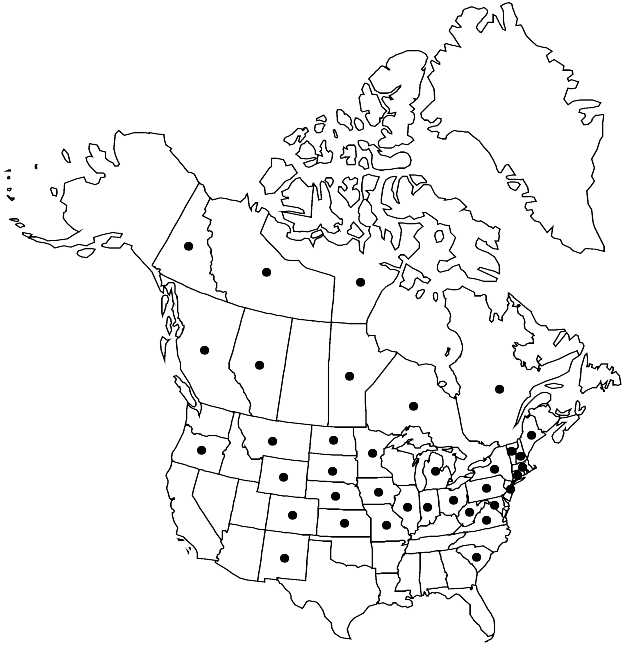Camelina sativa
Stirp. Austr. Fasc. 1: 17. 1762.
Annuals or biennials. Stems unbranched or branched distally, (1.2–)3–10(–13) dm, glabrous or sparsely pubescent basally, trichomes branched, rarely mixed with fewer, simple ones. Basal leaves often withered by anthesis. Cauline leaves: blade lanceolate, narrowly oblong, or linear-lanceolate, (1–)2–7(–9) cm × 2–10(–15) mm, base sagittate or strongly auriculate, margins entire or, rarely, remotely denticulate, apex acute, surfaces glabrescent or sparsely pubescent, trichomes usually forked. Fruiting pedicels ascending, (8–)12–20(–27) mm. Flowers: sepals 2–3(–4) × 0.5–1 mm; petals yellow, (3.5–)4–6 × 1–1.5 mm; filaments 1.5–3 mm; anthers ca. 0.5 mm. Fruits pyriform or broadly obovoid, 7–9(–13) × 4–5(–6) mm (distinctly longer than wide), apex often subtruncate; valves each with prominent midvein, margin narrowly winged; style 1.2–2.5 mm. Seeds dark brown, (1.5–)1.8–2.5 × 0.7–1 mm. 2n = 40.
Phenology: Flowering May–Jun.
Habitat: Farms, grassy areas, fields, waste places
Elevation: 0-1500 m
Distribution

Introduced; Alta., B.C., Man., N.W.T., Nunavut, Ont., Que., Yukon, Colo., Conn., D.C., Ill., Ind., Iowa, Kans., Maine, Mass., Mich., Minn., Mo., Mont., Nebr., N.H., N.J., N.Mex., N.Y., N.Dak., Ohio, Oreg., Pa., S.C., S.Dak., Vt., Va., W.Va., Wyo., Europe, Asia, introduced also in South America, Australia.
Discussion
R. L. McGregor (1985) indicated that Camelina sativa is no longer established in North America; we tend to agree because we have not seen any collections made within the past 40 years.
Selected References
None.